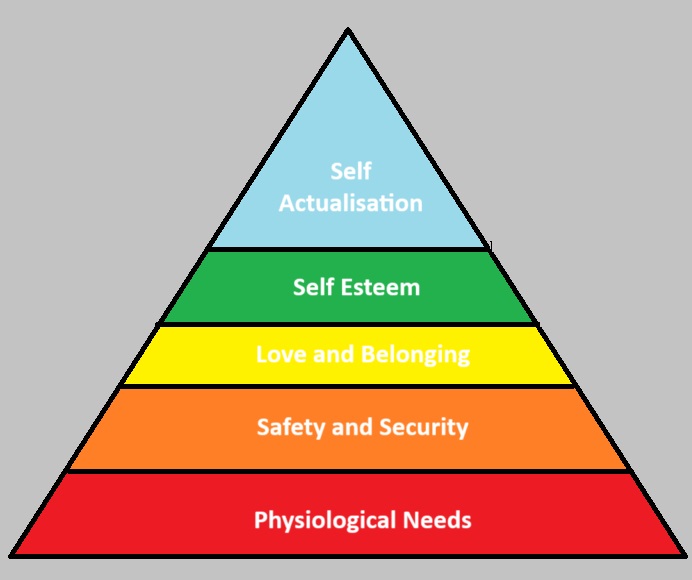Key Mental Health Resources and EAP Support for Lawyers: How to Find the Right-Fit Solutions for Your Law Firm
A Note from Chronicle Law
The questions addressed in this FAQ series have been sourced from members of the legal sector, and we sincerely thank those who contributed their thoughts and concerns. If you have missed any of the previous parts to this series you can find links to them here.
In our collaboration with Jamie Kelly of YTherapy, we could see a notable acknowledgment of the stress and pressure lawyers often face in their roles, particularly when engaging with leaders, senior managers, and partners in the legal sector. This understanding naturally led to discussions about the workplace support available to colleagues during challenging times and the importance of maintaining office morale.
What stood out was a genuine concern for employee well-being, accompanied by thoughtful ideas on small ways to ease burdens. However, these conversations often encountered hurdles—the familiar “BUTs” that many responsible for implementing Employee Assistance Programmes (EAPs) will recognise; financial constraints, HR requirements, and internal politics frequently complicate the process.
Additionally, there is the challenge of moving beyond the “tick-box” approach. While having a range of resources in place is necessary and commendable, these initiatives can feel ineffective if they aren’t well-promoted, fail to engage employees, or simply don’t align with the unique needs of the workplace.
In this article, Jamie Kelly offers valuable insights into addressing these challenges and highlights key considerations for selecting the right support package for your firm with the aim that it makes a difference for your colleagues.
- We recently asked our staff about their use of our EAP, whilst many knew it was available some didn’t, what is the best way to promote it as a useful tool?
- Are there any alternatives to buying into an EAP company that offer a blanket service, is there any service that offers specific help to law firms that could replace it?
- What’s the most valuable type of mental health resource (e.g., counseling, mental health days, team bonding days, providing refreshments, resilience training)?
A Note from Jamie Kelly
The central question I hear is:
What’s the best EAP support or mental health resource for lawyers?
Every solution has its value. The real challenge is determining what will meet the varying needs of your employees, choosing resources that best align with those needs, and helping staff access these resources that are available to them.
The sheer number of well-being solutions out there can make it difficult to know where to start. Some claim to be a one-stop-shop for all employees. Others claim that their training, product or service will resolve specific issues for specific industries or professions. Over here it’s cheaper. Over there it promises to halve absenteeism and double performance. No wonder it’s so hard to know what’s best.
You’re not alone in this challenge.
Even when you’ve chosen a great resource, there’s still another challenge. A recent study shows that while 75% of UK organisations offer EAPs, a third of employees don’t even know about them, meaning these resources often go underutilised. Awareness and accessibility are key, but stigma can also play a role in stopping people from seeking help.
Simply telling you what’s best on the market won’t help you think critically or understand the needs of your workforce. That’s why this article is about helping you understand what your staff require, how different types of support can meet those needs, and how to communicate your resources effectively to your employees.
Ultimately, it’s about helping your staff get the help they need – at any stage along the way.
Understand the Different Needs of Your Legal Team
Understanding the diverse needs of your employees is the first step.
Without this clarity, the resources and initiatives you introduce are less likely to meet their needs. The more you understand those needs, the better you’ll be at choosing solutions that truly align with them. When your solutions are aligned, this can lead to higher engagement, more effectiveness, and greater impact.
Maslow’s Hierarchy of Needs

Let’s use Maslow’s Hierarchy of Needs as a framework to better understand the different types of well-being needs your employees may have and how to prioritise them.
Maslow’s model suggests that people must first satisfy their basic needs, such as food, shelter, and safety, before they can move on to higher needs like social connections, self-esteem, and personal growth.
In the workplace, this means employees need to be safe, secure and comfortable in their environment. Resources that go towards keeping your staff safe and secure should be prioritised. Once these foundational needs are addressed, you might consider other initiatives or resources, like team socials or opportunities for personal and professional growth.
Understanding these needs in this structured way can help guide your decision-making when selecting external resources or EAP support.
Physiological Needs
The first level of Maslow’s hierarchy addresses basic physiological needs – essentials like food, water, health, and physical comfort. In the workplace, this translates to provisions that support employees’ physical well-being. External resources might include meal benefits, stocked refreshments, ergonomic office furniture, and health benefits. By addressing these basic needs, you create an environment where employees feel valued and cared for on a fundamental level. This will help establish the groundwork for everything else to follow.
Safety Needs
Safety needs refer to both physical safety and psychological safety. Employees need to feel secure in their jobs and confident that their employers will protect them and keep them safe.
When we talk about safety needs, especially in high-pressure environments like law, psychological safety is just as important as physical safety. This means providing employees with access to mental health support or trauma training to help them cope with the stress of their roles.
For example, if the job requires employees to face difficult client interactions or traumatic cases, offering trauma-informed resources that address emotional well-being and increase psychological resilience can support them in their roles. By addressing these basic safety needs, employees are better able to focus on higher-level goals, like professional development, without being weighed down by stress or insecurity.
Social Needs (Love and Belonging)
Employees need to feel connected to others, whether through their work relationships or a sense of belonging within the organisation. External resources that support this could include team-building activities, networking opportunities, or social support services through an EAP. Creating a positive social environment where employees can build relationships or feel part of a team is key for addressing these needs.
Self-Esteem Needs
Self-esteem needs revolve around gaining recognition, feeling valued, and developing a sense of self-worth. When these needs are met, employees are more likely to feel motivated and engaged. External resources can play a significant role here through opportunities for professional development, training programmes and additional certifications, or even leadership coaching that can help employees build confidence.
Self-Actualisation
Self-actualisation refers to the pursuit of personal growth and fulfilment – when employees feel they are realising their full potential. At this stage, employees might be seeking personal or professional development opportunities that go beyond basic job requirements. External resources like mentoring programmes, advanced training opportunities, or access to external coaches and career development specialists could help employees explore these higher-level goals.

Step Back, Tune In, Then Take the Lead – Mindfully
Start by looking at what’s already being provided to your team. Are you meeting their basic needs for safety, comfort and well-being, or are there gaps? For example, if staff are asking for their physical needs to be met – things like stocked refreshments, meal benefits, or a clean, well-maintained space where they can take a proper break – these might be small or seem ordinary, but they have a big impact on their sense of well-being and their trust that you can meet their core needs.
If basic needs aren’t met first and resources are allocated elsewhere, it can undermine the value of those resources. When firms direct their investments toward flashy events or perks that miss the mark on practical, everyday needs, the impact of those resources gets lost. Staff will notice when their fundamental needs aren’t being addressed and this can diminish the value of bigger initiatives.
However, if the basic needs are met, and you build upon that – that’s when your offering of resources truly delivers value. It’s about ensuring the essentials are in place first. Only then will the larger gestures feel meaningful and impactful. How you go about it matters. Without foundational support, even the best-intentioned efforts can fall flat. It’s about listening in on the needs and responding to them directly and effectively.
EAP One-Stop Shops vs. Specialist Mental Health Services for Lawyers: Which Is Best?
While general well-being programmes provided through larger Employee Assistance Programmes (EAPs) offer broad coverage for a wide range of issues, they don’t always address the specific challenges that lawyers face. You might be wondering whether to stick with the general support available or invest in something more specialised that directly targets the complexities of legal work.
However, it’s not about choosing one over the other. The real value lies in combining both. A well-rounded approach that includes general support for day-to-day well-being, alongside specialised services tailored to the unique challenges lawyers encounter, can create a more effective and comprehensive support system.
Think of it like healthcare: most of us rely on our GPs for routine check-ups, prescriptions or general health concerns. A GP provides broad, accessible coverage and serves as a first point of contact. This is akin to a larger EAP, which offers foundational support for a wide range of challenges, from counselling, dental to financial advice.
However, just as some medical issues require a specialist – such as a cardiologist for heart health or a trauma therapist for treating PTSD – your team may face challenges that go beyond what broad EAPs can address. For example, employees in high-pressure environments, like law firms, may need trauma-informed mental health care, vicarious trauma support or tailored burnout interventions to address the unique pressures of their roles.
General Support vs. Specialist Services
Broad support services, such as general EAPs, offer:
- Wide Accessibility: Available to the entire workforce, addressing a range of issues like stress, financial concerns, and personal challenges.
- Scalability: Effective for providing baseline support across a large, diverse employee population.
- Coverage for Common Issues: These programmes often cover a multitude of needs.
However, EAPs might lack the depth needed for more complex or niche concerns. As reported by EAPA UK, since the pandemic, the use of EAP services has increased, and with that, more serious issues are being reported. EAPs are becoming more overwhelmed and are worried about needing to act as a ‘blue light’ emergency service.
That’s where specialist services come in:
- Focused Expertise: Specialist support services tend to be led by professionals with a focused skill set, specific training, and relevant qualifications tailored to particular challenges.
- Targeted Impact: Address deeper, more specialised needs that generic programmes may overlook.
- Customisation and Tailoring: Specialist providers can collaborate with your organisation to design bespoke solutions, such as ongoing programmes or retainer models. This flexibility allows you to offer continuous support that isn’t limited by constraints such as a pre-set number of sessions from an insurance plan.
Why Both Are Essential
It’s likely that you wouldn’t stop seeing your GP just because you need a specialist, and the same applies here: general support and specialist services can work together.
EAPs provide essential, general support for a wide range of issues, helping employees with everyday challenges. Specialist services, on the other hand, address more specific, complex concerns that require deeper expertise.
For organisations, combining both types of support can further address the varying level of needs. While EAPs handle the common issues, specialists dive into the more nuanced problems. Together, they can create a well-rounded approach to employee well-being.

How to Promote Well-being Support Effectively
It’s not enough to simply send an email around to announce your new well-being initiative.
Your employees’ well-being is too important to just ‘set and forget.‘
Here’s how to actively promote and integrate support systems for your employees:
- Make It Easy to Access
Centralise the resources in one place – whether it’s a link on your intranet or integrated into your HR systems. Show employees exactly where to find support when they need it. Make it easy. Don’t make it a treasure hunt.
Include clear, accessible signposts on how to access services. Whether it’s an EAP or mental health support, employees need to understand the gateway to these services and when to use them.
- Explain What’s Available and When to Use It
Don’t assume employees know what’s included. Take time to explain what each service offers and the scenarios where they might need it. For example, if employees know they can access counselling, they’ll be more likely to use it when needed.
If services aren’t visible or easy to use, they can become a barrier rather than a solution. Employees need to feel confident and empowered to access support, knowing they can quickly find the information they need without confusion or unnecessary effort. Clear, accessible resources reduce hesitation and make it easier for staff to seek help when they need it most.
- Onboard Employees Early
Don’t wait until someone is in crisis to introduce them to available resources. Just like signing up to a GP practice when you move house, onboarding employees to these services early is key. When things are calm, show them how to use the support and how to get started. That way, when they really need it, they won’t be caught off guard.
If the service has an onboarding process (for example, meditation apps or therapy booking systems), consider making this part of your team’s initial training. This gives employees the tools they need right from the start.
- Be Consistent with Your Messaging
If you’re promoting work-life balance and burnout prevention, ensure your messaging aligns with your actions. For example, arranging workshops during lunch or after work hours can send mixed messages about your position on wellness. True support means respecting employees’ time and making space for wellness at work.
- Create an Environment That Supports Breaks
Small things matter, like ensuring there are enough cups in the kitchen and a welcoming communal break space. When these basics are in place, it shows your team that you care about their well-being. If they have a comfortable space to recharge, they’re more likely to take that break and refresh.
Conversely, spending money on other initiatives without addressing the basics undermines your efforts. Show your care by investing in both the small things and the big things.
- Align and Stay Consistent
To effectively support mental health, your messaging needs to be reflected in your actions. If your well-being programmes are hard to access – whether due to conflicting schedules, complex procedures, or lack of clear communication – it undermines the effort. For example, offering mental health support but not carving out dedicated time during work hours for employees to engage with these resources sends a contradictory message.
Similarly, if your policies don’t align with the support you claim to offer, like encouraging well-being but not providing adequate spaces for rest or managing workloads appropriately – employees will notice. Make sure your policies, daily practices, and work structures all reinforce the commitment to well-being and remove any barriers that might prevent employees from utilising the support available to them.
What’s Your Next Step?
Prevention is key. If problems aren’t addressed early, they can quickly escalate into crises.
Today, we face more challenges than ever, and for professionals working in high-pressure fields like law, the cumulative effect of ongoing stress can be overwhelming. It’s natural to need extra support along the way. That support comes from both the internal support networks within your workplace and external services. We all have a part to play.
Keep the conversation open, promote a culture of support (and a culture of seeking help), and make resources visible and easily accessible. Build strong scaffolds of support that employees can rely on, at any stage they may need help.
Remember, you don’t have to figure this out alone. At YTherapy, we specialise in providing tailored mental health support, including therapy for lawyers and workplace wellness programs for law firms. We’re here to help you navigate those tougher conversations, understand your team’s needs, and support you in making decisions that focus on employee well-being and safety. If you’re unsure about the next steps or simply want to talk things through, we’re here to help. Reach out for a free, no-obligation consultation to discuss your team’s well-being. To learn more about how we can help your employees, contact us at 07958 555 308, email jamie@ytherapy.com, or visit YTherapy.com.
You can also find help and support through Chronicle Law’s Mental Health Awareness page.
Mental Health in the Legal Profession: Part 1
Mental Health Challenges and Barriers to Seeking Support
Mental Health in the Legal Profession: Part 2
How to Deal with Stress as a Lawyer and Stop Burnout Before it Starts
Mental Health in the Legal Profession: Part 3
A Safety-First Approach to Employer Duty of Care and Employee Wellbeing
Mental Health in the Legal Profession: Part 5
Preventing Lawyer Burnout in Today’s Digital Age
 Jamie Kelly
Jamie Kelly